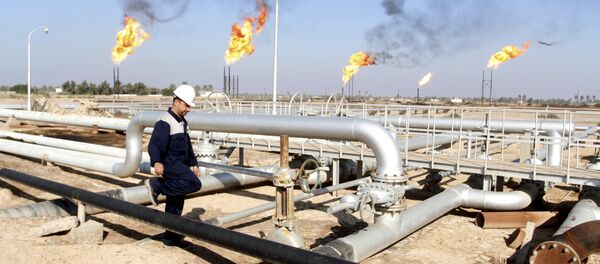MOSCOW (Sputnik) — Last Tuesday, Saudi Minister of Energy, Industry and Mineral Resources Khalid Al Falih told reporters that Saudi Arabia might decide on the extension of the deal based on other countries' compliance.
According to the OPEC-non-OPEC agreement, member states of the cartel will cut oil production by 1.2 million barrels per day for the first half of 2017. The non-OPEC members, including Russia, joined the deal by promising to reduce their oil output by 558,000 barrels per day.
"Our point of view is that the long-term price stabilization should be based on relations between not only producers but key consumers and world regulators as well. Which seems unlikely given the current economic and political turbulence. That means that there are risks of the [oil output limit] agreement not being prolonged, which are linked to the will of the main parties as well as to the dynamic of the shale oil production in the United States that is not likely to want to join any deals in the foreseeable future," the company's representative said.
He noted that a long-term agreement would be beneficial for the global economy and oil industry.
"That is why we believe that the dynamic of the global demand for oil will balance the market amid the shrinking of investments in the period of extra-low prices, but the risk of the price war flare up remains," the Rosneft representative said.
According to him, Saudi Arabia's aim at increasing its share of the global oil market turned out to be unachievable because of the "efficiency and therefore resilience of Russian oil industry."
The fast adaptation of shale oil producers in the United States to the growing oil prices remains the key risk for the extension of the output freeze deal, according to the Rosneft representative.
"There are reasons to believe that Saudi Arabia will stay interested in price control, trying to find some equilibrium, which on one hand would recoup the missed revenue and on the other hand would contain the significant growth of shale oil production in the United States," the representative said.





